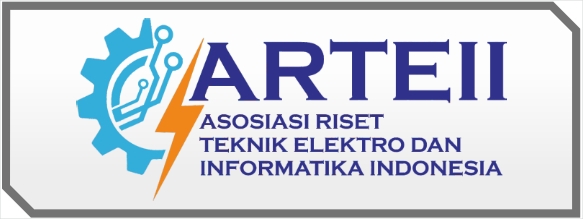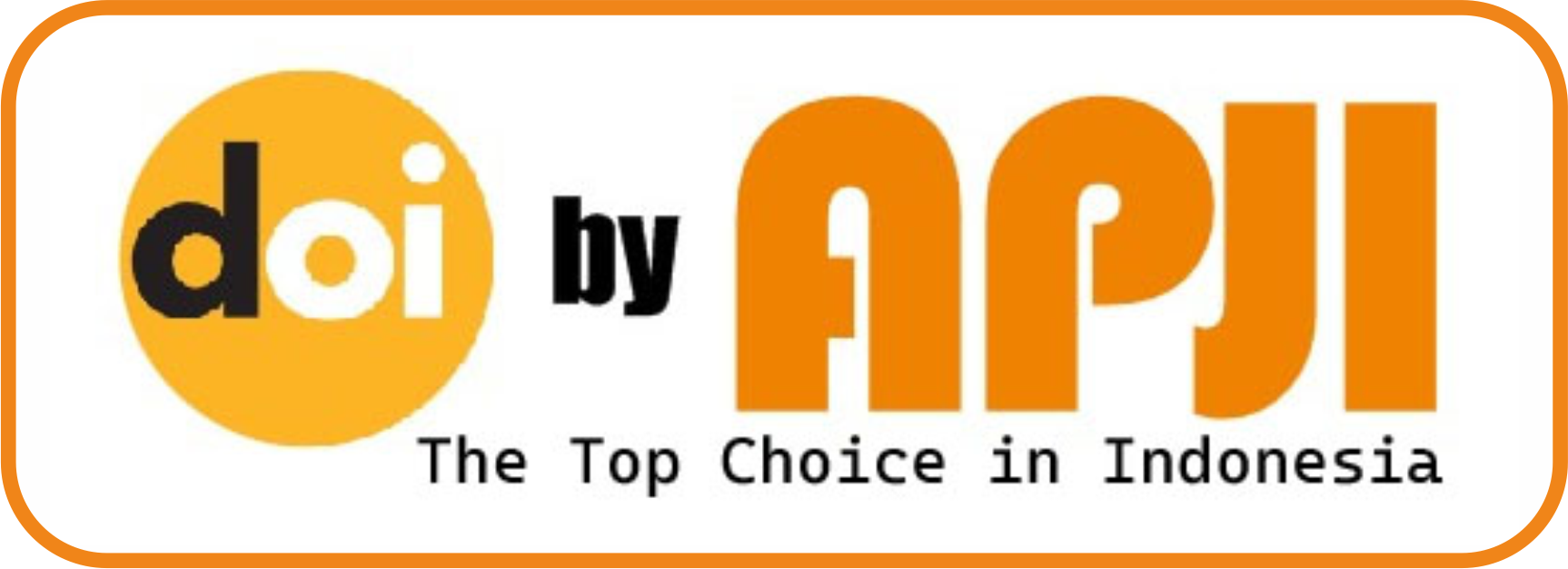Artificial Intelligence-Driven Digital Communication : Evaluating the Mobile-Applications and Fostering Policies for Cultural Heritage Preservation
DOI:
https://doi.org/10.55606/jupumi.v4i1.3748Keywords:
Artificial intelligence, digital communication, cultural heritage preservation, AI integration, digital governanceAbstract
This study investigates whether AI is a possible game-changer in the communications industry for cultural manifestations digitally and, hence, an active protagonist in the moisture preservation and sustenance of Nusantara cultural heritage. By examining eight cultural applications on the Google Playstore ranging from cultural education application to local language dictionary application and so on, this research evaluate the existing mobile apps and future opportunities for integrating AI into cultural preservation endeavors. The results indicate that present applications do not employ AI but there is great potential for incorporating AI features such as adaptive learning, semantic search, and personalization of content recommendations. The study stresses having a solid digital backbone defined by an inclusive policy framework and collaborative inter-disciplines which is crucial because of challenges such as disparities in technological access, data privacy concerns, and resistance from culture. Policy recommendations ensuring the responsible use of AI are put forward in terms of ethical standards, digital literacy, and sustainable development that strive to advance Indonesia's digitalization narratives in harmony with cultural sustainability in the wake of the digital era.
References
Adiba, S., Febriyanto, & Rahmawati, N. S. (2025). Exploring GenAI’s role in digital cultural memory at museums and art galleries in Indonesia: AR and VR perspectives. Lecture Notes in Computer Science (Including Subseries Lecture Notes in Artificial Intelligence and Lecture Notes in Bioinformatics), 15493 LNCS, 198–211. https://doi.org/10.1007/978-981-96-0865-2_16
Afshar, S. V., Eshaghi, S., Hadighi, M., & Varinlioglu, G. (2024). From past to present: A study of AI-driven gamification in heritage education. In K. O., P. M. C., & W. G. (Eds.), Proceedings of the International Conference on Education and Research in Computer Aided Architectural Design in Europe (Vol. 2, pp. 249–258). Education and Research in Computer Aided Architectural Design in Europe. https://www.scopus.com/inward/record.uri?eid=2-s2.0-85210265519&partnerID=40&md5=1ca53c6b61f25de5382f72771655cced
Aggarwal, N. (2020). Introduction to the special issue on intercultural digital ethics. Philosophy and Technology, 33(4), 547–550. https://doi.org/10.1007/s13347-020-00428-1
Ailakhu, U. V. (2024). Digital preservation strategies for historical records in the age of AI and the metaverse. Library Hi Tech News. https://doi.org/10.1108/LHTN-10-2024-0175
Almeida, V., Mendes, L. S., & Doneda, D. (2023). On the development of AI governance frameworks. IEEE Internet Computing, 27(1), 70–74. https://doi.org/10.1109/MIC.2022.3186030
Aminah, S., & Saksono, H. (2021). Digital transformation of the government: A case study in Indonesia. Jurnal Komunikasi: Malaysian Journal of Communication, 37(2), 272–288. https://doi.org/10.17576/JKMJC-2021-3702-17
Androniceanu, A. (2023). The new trends of digital transformation and artificial intelligence in public administration. Administratie Si Management Public, 2023(40), 147–155. https://doi.org/10.24818/amp/2023.40-09
Arani, S. M. N. (2024). Navigating the future of language learning: A conceptual review of AI’s role in personalized learning. CALL-EJ, 25(3), 1–22. https://www.scopus.com/inward/record.uri?eid=2-s2.0-85209152331&partnerID=40&md5=83fe7a6890d86c5543fea4052b23b72f
Ashok, M., Madan, R., Joha, A., & Sivarajah, U. (2022). Ethical framework for artificial intelligence and digital technologies. International Journal of Information Management, 62, 102433.
Bakirman, T., Kulavuz, B., & Bayram, B. (2023). Use of artificial intelligence toward climate-neutral cultural heritage. Photogrammetric Engineering & Remote Sensing, 89(3), 163–171.
Bouziane, K., & Bouziane, A. (2025). Facilitating cross-cultural translation with ChatGPT in Moroccan travel agencies: A user satisfaction study. EDPACS. https://doi.org/10.1080/07366981.2025.2454093
Brand, D. J. (2022). Responsible artificial intelligence in government: Development of a legal framework for South Africa. EJournal of EDemocracy and Open Government, 14(1), 130–150. https://doi.org/10.29379/jedem.v14i1.678
Budiman, E., Wati, M., & Norhidayat. (2019). Mobile cultural heritage apps for the digital literacy of the Dayak tribe, Borneo, Indonesia. Conservation Science in Cultural Heritage, 19, 205–217. https://www.scopus.com/inward/record.uri?eid=2-s2.0-85100108960&partnerID=40&md5=4a1c6a4fb8d71b5858d5b20d827e77b0
Cao, J., Li, Y., Zhang, Q., & Cui, H. (2019). Restoration of an ancient temple mural by a local search algorithm of an adaptive sample block. Heritage Science, 7(1), 39.
Chainoglou, K., & Katsios, S. (2024). Threats to cultural heritage: Normative developments on AI and cultural heritage. In Recreating Creativity, Reinventing Inventiveness: Challenges Facing Intellectual Property Law. Taylor & Francis. https://doi.org/10.4324/9781003260127-10
Chiaráin, N. N., Nolan, O., Comtois, M., Gunning, N. R., Berthelsen, H., & Chasaide, A. N. (2022). Using speech and NLP resources to build an iCALL platform for a minority language: The story of An Scéalaí, the Irish experience to date. In M. S., A. A., A. A., C. A., H. A., H. J., L. J., P. A., R. S., & S. L. (Eds.), COMPUTEL 2022 - 5th Workshop on the Use of Computational Methods in the Study of Endangered Languages, Proceedings of the Workshop (pp. 109–118). Association for Computational Linguistics (ACL). https://www.scopus.com/inward/record.uri?eid=2-s2.0-85137097052&partnerID=40&md5=f61c83bfafed834276a05444d15bd354
Christian, Y., Choo, Y.-H., & Yusof, N. F. A. B. D. (2024). Systematic literature review on the use of machine learning in online learning in the context of skill achievement. Journal of Theoretical and Applied Information Technology, 102(6), 2466–2479. https://www.scopus.com/inward/record.uri?eid=2-s2.0-85189703876&partnerID=40&md5=f69a702ee4009fce7ae1ac40dc310a46
Claro, G. T. N., & Africano, G. N. (2023). Quality culture: A bibliometric review on its impact on organizations; Cultura de calidad: Una revisión bibliométrica sobre su impacto en las organizaciones. Revista de Ciencias Sociales, 29(ESPECIAL 8), 346–361. https://doi.org/10.31876/rcs.v29i.40958
Constantin, F., & Kavoura, A. (2024). Boosting multilingualism of websites in digital cultural heritage with Chat Generative Pre-training Transformer (ChatGPT) in accredited museums, Romania. In K. A., B.-T. T., & T. F. (Eds.), Springer Proceedings in Business and Economics (pp. 651–660). Springer Nature. https://doi.org/10.1007/978-3-031-51038-0_70
Daou, O., & Mohanty, S. S. (2024). Cultural survival heritage of Bambara language by using NLP. Studies in Computational Intelligence, 1148, 173–182. https://doi.org/10.1007/978-981-97-1987-7_14
Du, J. (2024). Shaping culture digitally: Exploring Tang Dynasty costume structures through AI-driven interaction systems. Journal of Information Systems Engineering and Management, 9(2). https://doi.org/10.55267/iadt.07.14349
Farliana, N., Murniawaty, I., & Hardianto, H. (2023). Sustainability of the digital economy in Indonesia: Opportunities, challenges and future development. Review of Business and Economics Studies, 11(4), 21–28. https://doi.org/10.26794/2308-944X-2023-11-4-21-28
Ghandour, A., & Woodford, B. J. (2023). Guidelines to develop AI ethics policy in organizations: Perspectives informed from two different countries’ laws. 2023 24th International Arab Conference on Information Technology (ACIT 2023). https://doi.org/10.1109/ACIT58888.2023.10453750
González-Martín, J. A. (2024). The hard problem of the androcentric context of AI: Challenges for EU policy agendas. In Ethics in Online AI-Based Systems: Risks and Opportunities in Current Technological Trends. Elsevier. https://doi.org/10.1016/B978-0-443-18851-0.00013-5
Miedes-Ugarte, B., Flores-Ruiz, D., & Wanner, P. (2020). Managing tourist destinations according to the principles of the social economy: The case of the Les Oiseaux de Passage cooperative platform. Sustainability (Switzerland), 12(12). https://doi.org/10.3390/su12124837
Murphy, C., Carew, P. J., & Stapleton, L. (2024). Human-centred machine learning approaches for smart cultural heritage spaces: A multicontinental review. IFAC-PapersOnLine, 58(3), 322–327. Elsevier B.V. https://doi.org/10.1016/j.ifacol.2024.07.171
Downloads
Published
How to Cite
Issue
Section
License
Copyright (c) 2025 Jurnal Publikasi Manajemen Informatika

This work is licensed under a Creative Commons Attribution-NonCommercial-ShareAlike 4.0 International License.




















